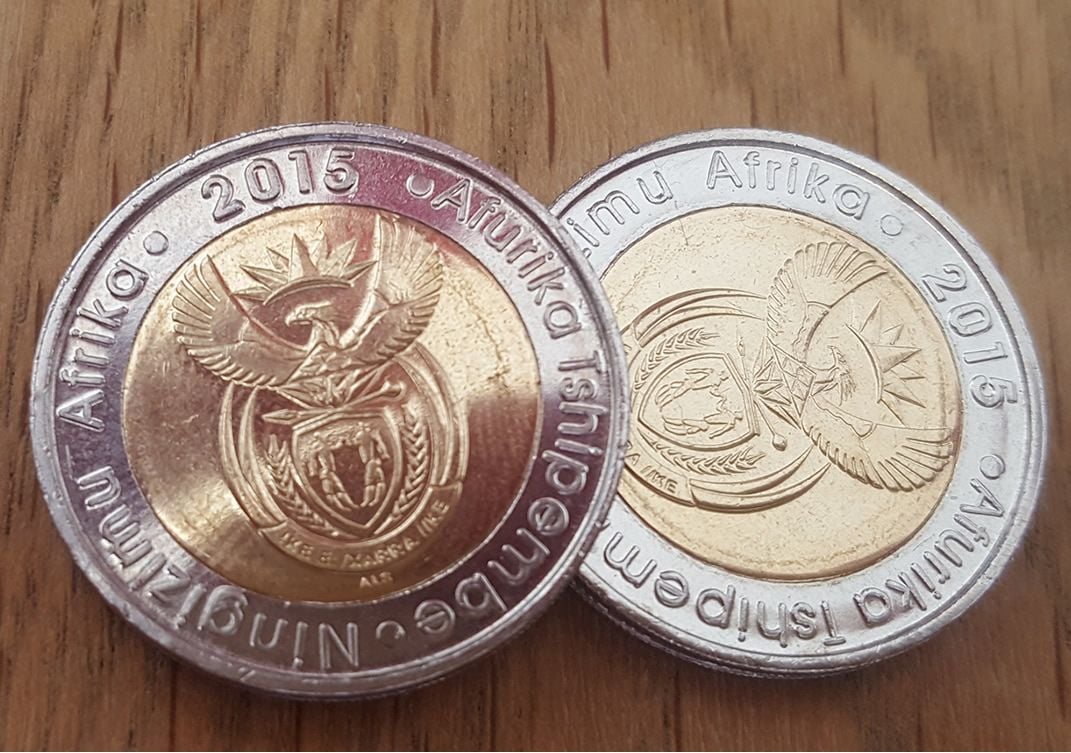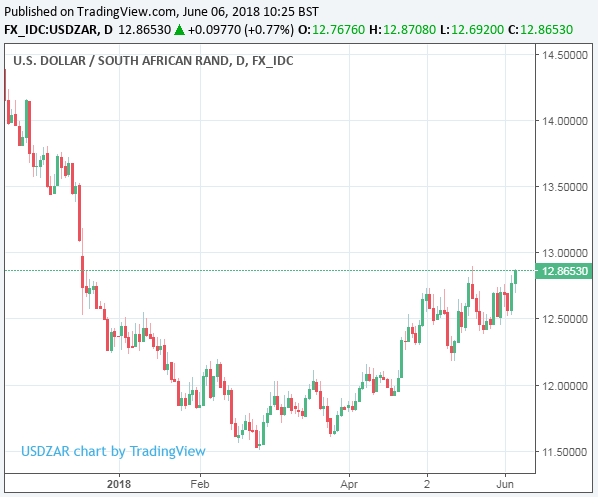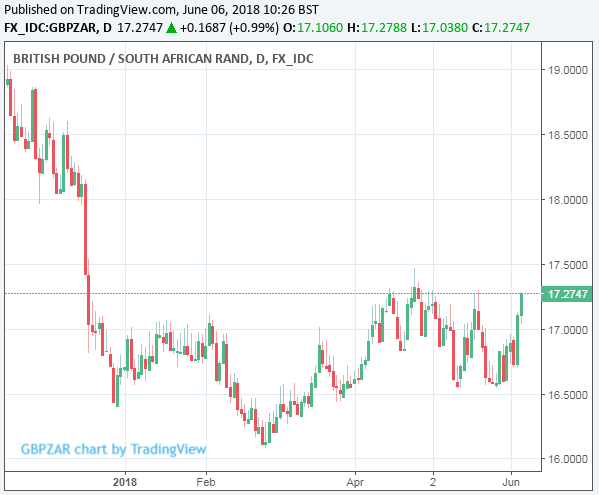The South African Rand Extends Losses after Q1 Economic Slump but Recovery is in Sight
- Written by: James Skinner
- Rand remains on back foot following first-quarter GDP collapse.
- Economy shrinks 2.2% in Q1, grows 0.8% for year to March.
- Economic recovery in sight but risks to rise as 2019 election approaches.

© Gary Howes, Pound Sterling Live
The South African Rand extended recent losses into the mid-week session as traders continue to shun the currency in the wake of the surprise slump in first-quarter economic growth revealed on Tuesday.
South African GDP growth collapsed in the first quarter, with the economy shrinking at an annualised pace of 2.2% when markets had expected only a 0.5% contraction. This left South African economic growth at just 0.8% for the year to the end of March, far beneath the market consensus for a reading of 1.9%.
The GDP decline was driven by a 16.5% fall in net exports during the period and a contraction in the value of capital expenditure by both public and private sectors. Household and government spending on other items also grew at a slower than expected pace, contributing to poor overall result.
The Rand sold off heavily over the course of Tuesday and continued to weaken during early trading Wednesday as traders marked down the possibility of an interest rate rise from the South African Reserve Bank later in 2018.
"Yesterday’s price action was driven entirely by the GDP print. After printing significantly lower than expected, bonds and the Rand repriced immediately as risk sentiment toward South Africa soured. Forward Rate Agreements have also started to price out the possibility of a rate hike," says Michelle Wohlberg, a strategist at Rand Merchant Bank.

Above: USD/ZAR rate shown at daily intervals.
The USD/ZAR rate was quoted 0.55% higher at 12.81 during the morning session Wednesday, denoting a weaker Rand, and has now risen by a total of 3.67% during 2018.
The Pound-to-Rand rate was 0.61% higher at 17.18 Wednesday and has now risen 3.17% in 2018 following a reversal similar to that seen in the USD/ZAR rate.
Both the Dollar and Sterling turned the tables on the Rand in recent months, converting what were around 7% gains for the South African currency into mid-single-digit losses for the year to date between early March and June.

Above: The Pound-to-Rand rate shown at daily intervals.
Advertisement
Get up to 5% more foreign exchange by using a specialist provider to get closer to the real market rate and avoid the gaping spreads charged by your bank when providing currency. Learn more here
Economic Recovery Ahead
"We still expect the economy to fare better in 2018 as a whole, but due to the first quarter’s poor outcome we have tweaked our GDP growth forecast down to 1.5% from 1.8% previously. Thereafter the economy is forecast to grow by 1,9% in 2019 and 2,4% in 2020," says Nicky Weimar, an economist at Nedbank.
Weimar and the Nedbank team say the South African economy should benefit from a recovery in mining and manufacturing later in 2018, given a robust outlook for the global economy, and that it should recieve a further tailwind from commodity prices that are expected to continue rising.
"Services are also expected to regain moderate momentum, driven by a stronger showing from domestic trade, increased foreign tourism and further improvements in credit demand," Weimar adds.
"This GDP weakness is likely transitory, in our view, though that is not to say we are expecting very strong growth going forward. But there were various technical and one-off factors that created a downward bias to Q1 GDP, whose effect is likely to fade in coming quarters," says Peter Worthington, an analyst with ABSA.
Building Longer-Term Risks
However, as much as growth could recover over the coming months, risks to the economy are also expected to build further in 2019. Developed world politics and financial market volatility will pose a particular challenge to the Rand, while domestic politics loom in the background as another prospective headwind to the South African currency and economy.
As an emerging market currency the Rand is sensitive to changes in global risk appetite and negatively correlated with movements in the US Dollar. So recent political uncertainty in Europe and President Donald Trump's shake-up of the international order in terms of trade both have the potential to wreak further losses on the Rand in 2018.
"These global risks are unlikely to be resolved quickly. Domestic risks are also likely to increase as public sector unions embark on a nationwide strike, uncertainties around land reform escalate and the political rhetoric become more populist ahead of the general election," Weimar writes, in a recent note. "Consequently, interest rates are forecast to remain unchanged for the rest of this year, before rising moderately late in 2019."
Controversial attempts to "reform" the system of land ownership in South Africa through 'appropriation without compensation' risk fomenting civil unrest and undermining international confidence in the domestic economy and currency.
These come ahead of 2019 elections that are seen placing South African politics, inequality and land ownership under the spotlight for all to see once again, which could be negative for the Rand.
"Ongoing policy uncertainty in many areas suggest the recovery could be tepid," says ABSA's Worthington.
After all, as recently as February 2018 South Africa's political future was cloaked in uncertainty as markets awaited the verdict from Moody's on the nation's local currency investment grade credit rating, which was inextricably linked with the fate of now-former President Jacob Zuma.
Zuma's February resignation paved the way for the reformist Cyril Ramaphosa to take the reigns in South Africa, which stemmed an exodus of international investors from the country and was pivotal to Moody's decision to spare the country from a downgrade to "junk" status that could have dealt the Rand and economy a severe blow.
The newly minted Ramaphosa will face his first electoral test as President in early 2019 when the nation goes to the polls. This will be the first opportunity many South African voters get to express a view on Ramaphosa's reform programme that has, so far, offered voters only tax increases and tight controls on government spending.
Advertisement
Get up to 5% more foreign exchange by using a specialist provider to get closer to the real market rate and avoid the gaping spreads charged by your bank when providing currency. Learn more here




